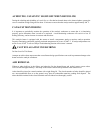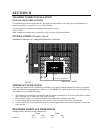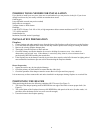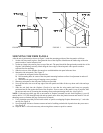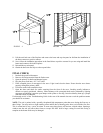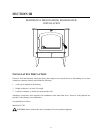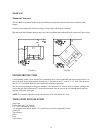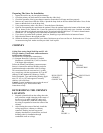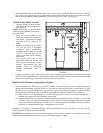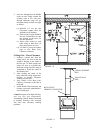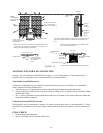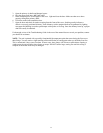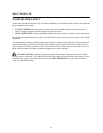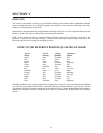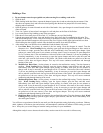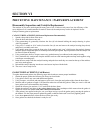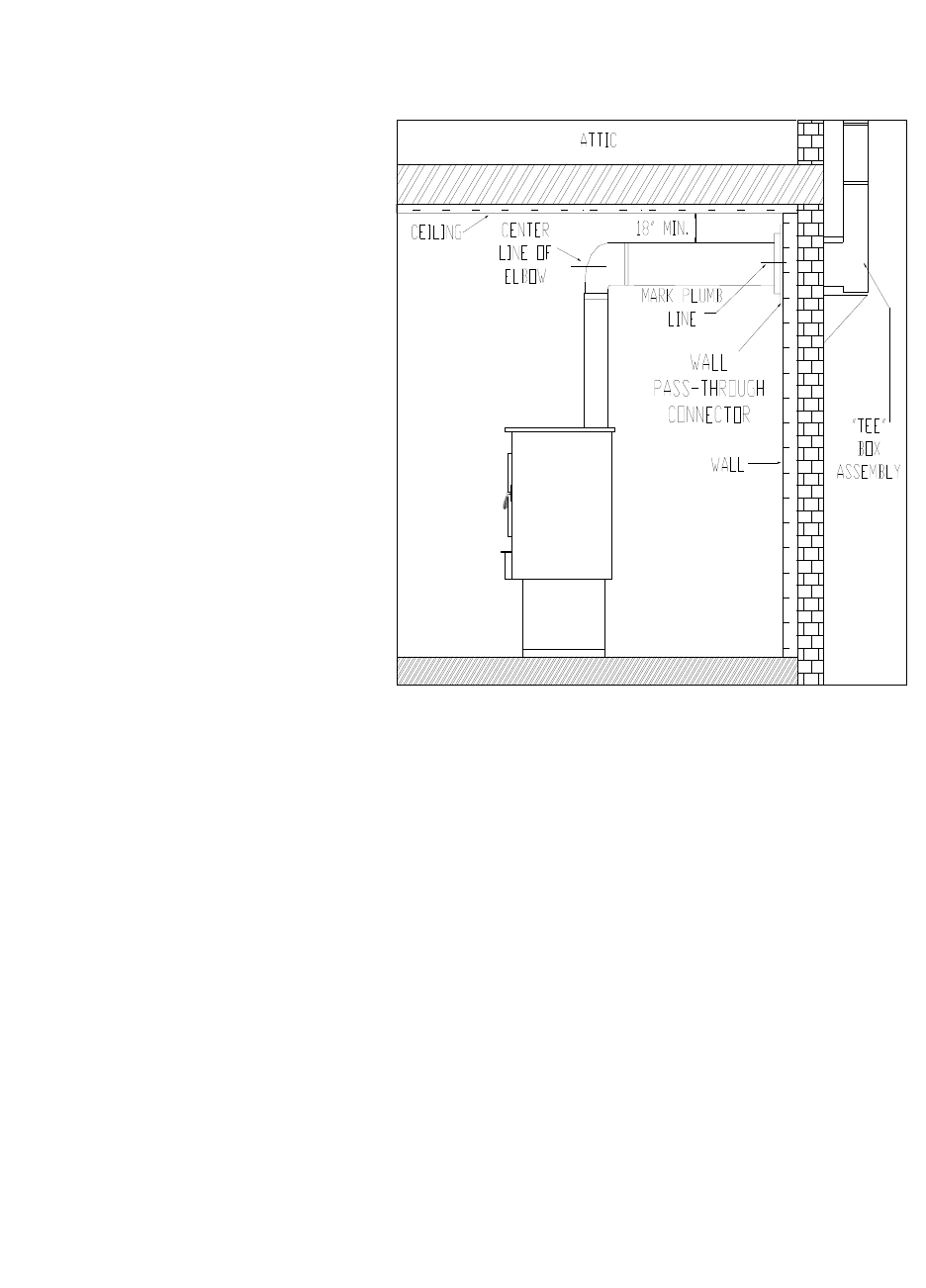
3. Now connect the stove to the ceiling support box by using #24 ga. minimum blued or black steel chimney
pipe. (Do not use galvanized pipe.) Connect each section so the crimpled end faces downward, and secure
each section to each other using at least three (3) sheet metal screws or rivets. (See Figure 8)
5. Connect the chimney collar to the tee-box using #24 ga. minimum blued or black steel connector pipe. DO
NOT USE GALVANIZED PIPE. Connect each section so the crimped end faces downward, and secure each
section to each other using at least three steel sheet metal screws or rivets.
Wall Exit Into Masonry (using single wall pipe)
1. Before connecting the Model 80 to a masonry chimney, determine that the masonry fireplace wall pass-
through connector thimble meets the NFPA-211 Code and local building codes and is a minimum of 18" from
the ceiling. If the connector thimble does not meet these codes, the pass-through connector must be modified.
Connectors may pass through walls or partitions constructed of combustible material if the connector is:
(a) either listed for wall pass-through or is routed through a device listed for wall pass-through and is
installed in accordance with the conditions of the listing.
(b) selected or fabricated in accordance with the conditions and clearances as stated in tables 5-7 of the 1988
NFPA 211 Code. Any unexposed metal that is used as part of a wall pass-through system and is exposed
to flue gases shall be constructed of stainless steel or other equivalent material that will resist corrosion,
softening, or cracking from flue gases at temperatures up to 1800
o
F.
In addition, a connector to a masonry chimney shall extend through the wall to the inner face or liner but not
beyond, and shall be firmly cemented to masonry.
EXCEPTION: A thimble may be used to facilitate removal of the chimney connector for cleaning, in which case
the thimble shall be permanently cemented in place with high-temperature cement.
Wall Exit Into Metal Tee-Box
1. Mark the plumb line on the wall dir-
ectly behind the center of the heater.
(See Figure 9)
NOTE: When using #24 ga. min. blue or
black steel pipe, maintain 18" between
pipe and ceiling.
2. Place the vertical portion of the
heater pipe and the elbow in position
and project a point onto the plumb
line level with the center of the
elbow.
3. Measure up so there will be at least
1/4" rise per foot of horizontal
connector pipe, maintaining
clearances to the ceiling as noted in
Figure 10. This will give you the
center of the hole for the chimney
penetration.
4. After locating the center of the
penetration, install the tee-box and
chimney as per the chimney manu-
facturer’s specifications and local
building codes for installation
through combustible walls or
ceilings.
FIGURE 9
14



